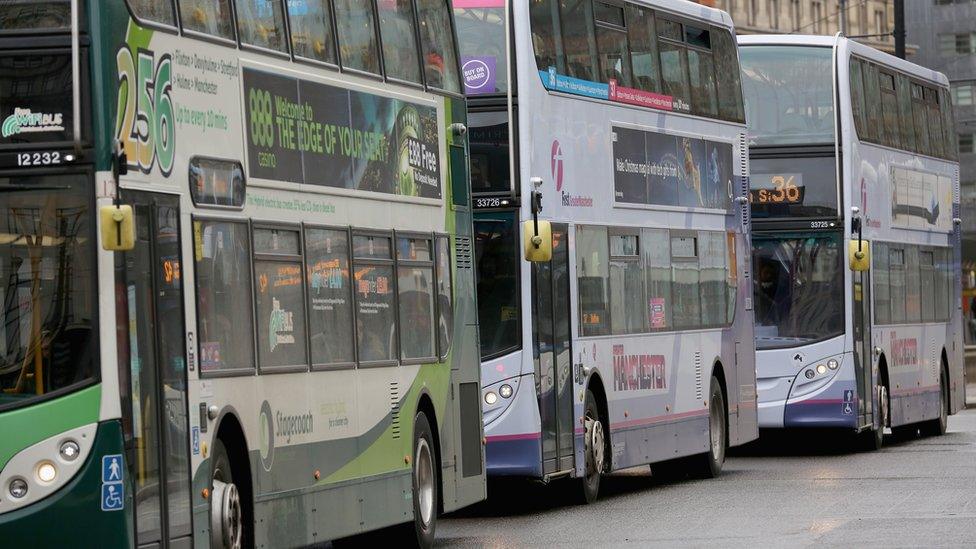Greater Manchester bus network back under public control
- Published
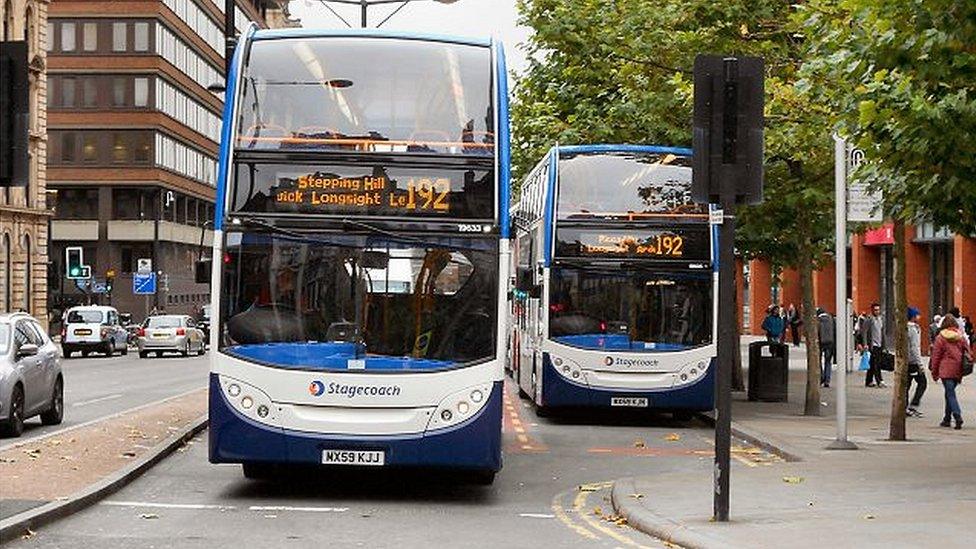
The region's buses will be run in a London-style system
Greater Manchester's bus network is being brought back under public control.
The region's buses will be run in a London-style system where operators bid to run services on a franchise basis.
Mayor Andy Burnham approved the plans, saying privatisation had brought "35 years of routes being cut and ticket prices rising".
Stagecoach, which is seeking a judicial review over the proposals, said it was "disappointed and surprised".
The franchise model, estimated to cost £135m, was backed by nine of the region's 10 councils.

Analysis
Judy Hobson, BBC North West Transport Correspondent
Bus passenger numbers in Manchester were falling, plummeting, long before the pandemic struck and the finger has consistently been pointed at the system.
When council leaders met a few days ago to discuss the bus network their comments were telling. They said it was "fragmented…incoherent… not fit for purpose".
For years campaigners, who envied London, demanded change, claiming de-regulation brought confusing price systems, high fares and some areas having no buses at all.
To be fair many bus companies agreed the system was far from perfect, but said they could have worked with local councils to make improvements.
By 2025 Manchester should be the only region outside of London to have a regulated system, but it's unlikely to hold the title for long.
Only in London, where regulation remained, has bus travel thrived. Certainly in Greater Manchester de-regulation has failed its passengers

Since the buses were privatised in 1986, Mr Burnham said, some areas in Greater Manchester had "no services at all", ticket prices had risen and routes had been cut, while passenger numbers had halved.
"We can only change that and hold the decline if we bring the buses back under the control of the public and the public authorities of Greater Manchester," he added.
'Game-changing'
Greater Manchester will be the first area outside the capital to have a regulated bus system since the 1980s.
It means fares, timetables and routes will be set by local authorities instead of private companies, but operators may be able to continue running services under a franchise system.
It will be introduced in Bolton and Wigan first in January 2023, before being rolled out across the remaining boroughs from January 2025.
Allow X content?
This article contains content provided by X. We ask for your permission before anything is loaded, as they may be using cookies and other technologies. You may want to read X’s cookie policy, external and privacy policy, external before accepting. To view this content choose ‘accept and continue’.
Transport for Greater Manchester (TfGM) will control local bus services on behalf of the Greater Manchester Combined Authority (GMCA).
It claimed the service would be "reliable, affordable, sustainable, accessible and accountable".
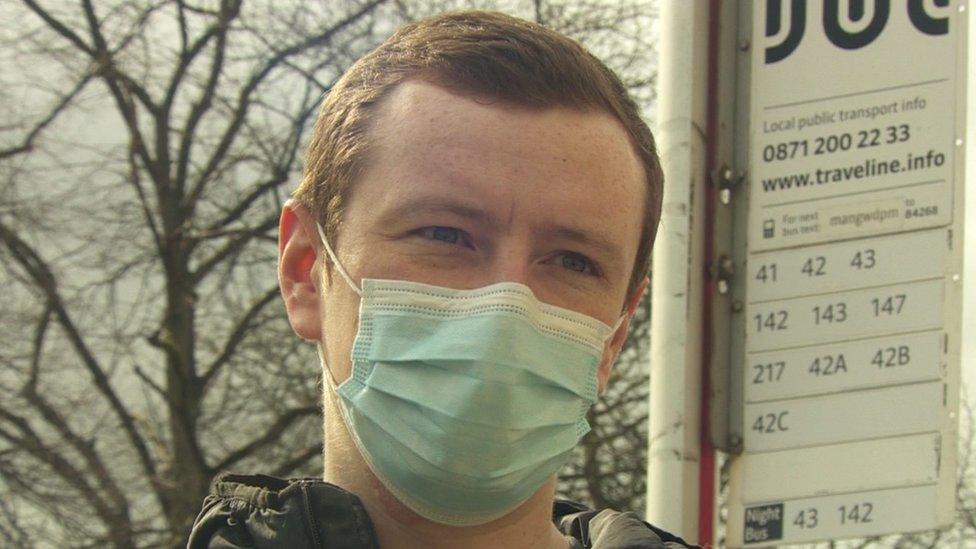
Hospital worker Chris Moore said the bus service needed to change
Chris Moore, who works at hospitals across Manchester, said: "A quick visit to a hospital in north Manchester, for example, can take up half a day with waiting either end for the buses.
"It takes a lot of time out of the day and does make things harder."
Both Stagecoach and another operator Rotala have said the decision-making process behind franchising was "unlawful" and have launched separate legal challenges, the Local Democracy Reporting Service said.
Stagecoach said it was "disappointed and surprised" the mayor had chosen to push ahead with the proposals and not wait for the outcome of its application for a judicial review due at the High Court on 27 and 28 May.
It accused the GMCA of carrying out a public consultation which "failed to meet the standards on proper process, evidence and analysis required by law".
The GMCA earlier said it had filed a response to the judicial review application.
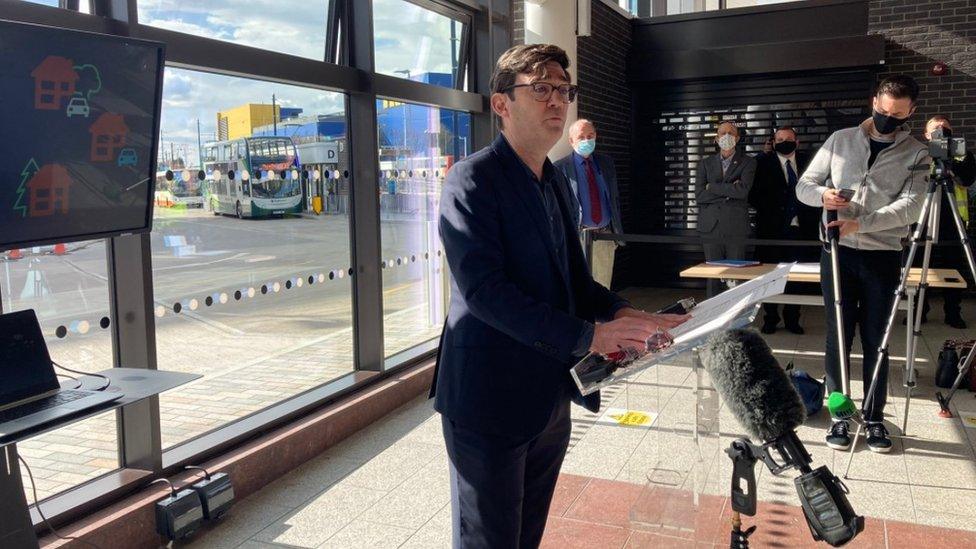
Andy Burnham said the franchise system would improve bus services
The Confederation of Passenger Transport, which represents bus and coach operators, said the "priority" was to give people confidence "to get back on buses and out of their cars as [lockdown] restrictions ease".
"We are concerned the franchising proposals as they stand risk detracting from this," it said.
Pascale Robinson, from public ownership campaign group We Own It who ran the Better Buses for Greater Manchester campaign, said the move would be "absolutely game-changing" for the region's public transport.
"Bringing our buses into public control will transform our bus network so that it can work for passengers, rather than for private profit," she said.

Why not follow BBC North West on Facebook, external, Twitter, external and Instagram, external? You can also send story ideas to northwest.newsonline@bbc.co.uk
- Published16 March 2021

- Published3 January 2020
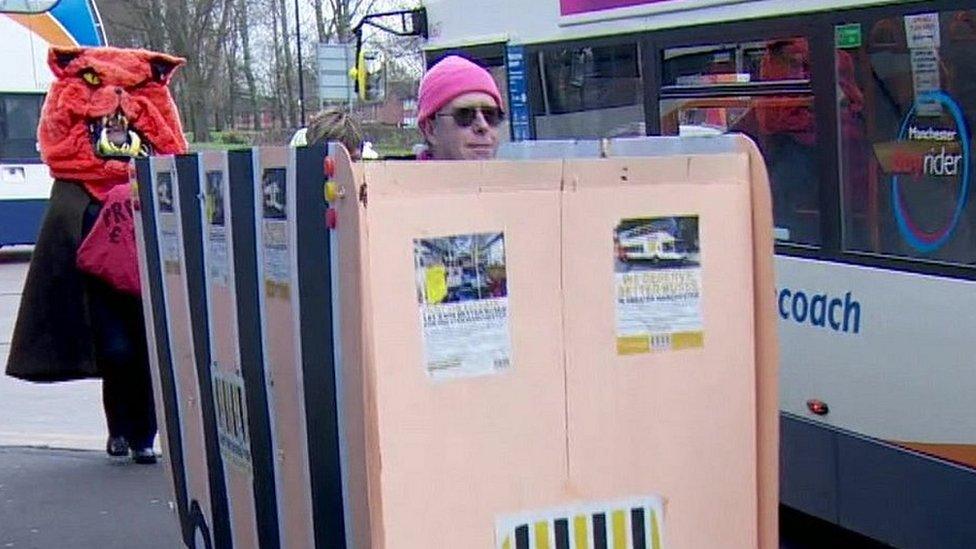
- Published24 June 2019
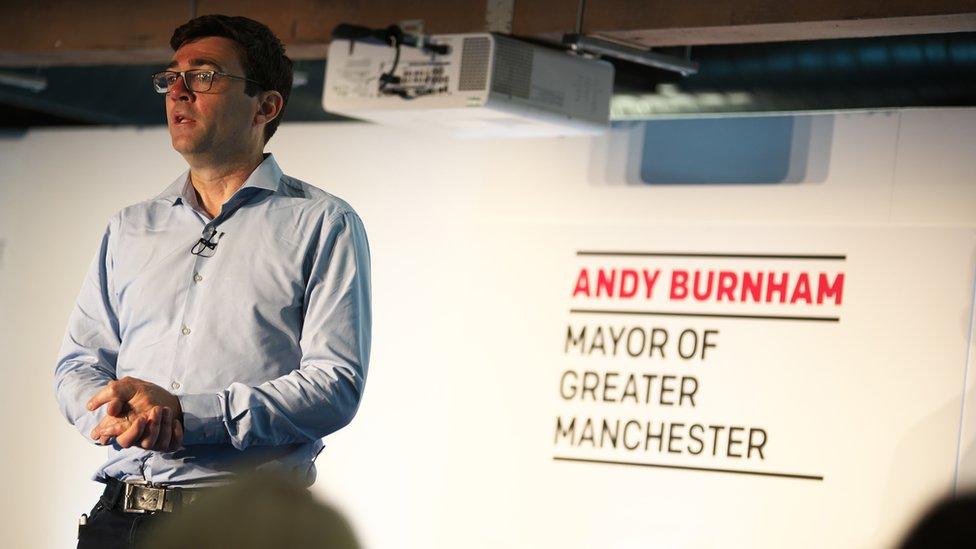
- Published28 August 2018
